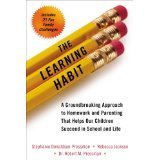One of the hardest things for children to do is to take responsibility for the things they control--namely, themselves and their actions. The most successful children are the ones who are able to take responsibility for things only within their area of control-- and let other things go. Easier said then done. In education, this concept can be an exceptionally ambiguous concept when children are asked to work on a group project.
Students aren't born knowing how to function as a group; it's a skill that can be both taught and learned. (Smith, 1999). Without this knowledge, students may be left feeling vulnerable and frustrated. Unless children clearly define their roles and discuss their ongoing progress, it can quickly become unclear who is really responsible for what.
Sometimes called collaborative group work, this type of learning may help teachers to facilitate - rather than dominate - the learning process. When students work in small groups to uncover the answers themselves, they go through a learning process that is often rewarded with both an enriched understanding of the material and a higher retention rate. It's been well-documented that cooperative learning can be a wonderful experience for both young children and college students.
Although the benefits can be substantial for students, careful planning and instruction on the part of the teacher is essential for group projects. It's empowering for students to be given choices and freedom when it comes to learning; but it's hard for kids to accept responsibility when things don't work out.
As both a parent and an educator, I've witnessed my fair share of poorly designed group projects and social loafing. I've often wondered if some students were responsible enough to successfully manage these types of activities. In 1997, three educational researchers out the University of Oklahoma set out to answer this question. Larry Michaelson, L. Dee Fink and Arletta Knight conducted a detailed review of both group projects and collaborative work done by students. Their goal was to design and implement guidelines for effective group activities.
They discovered the best way to use group projects for learning; offer consistent, immediate, unambiguous, and meaningful feedback. They also identified a single type of "group project" that should be avoided; the group paper.
In fact, the results of the University of Oklahoma study showed that the design of group papers "encourages social loafing, limits group cohesiveness...and increases student stress."
Writing is a solitary activity --not a group activity --and therefore only requires the division of labor. It does not promote group learning, social skills or significant discussion. Researchers concluded that by the time feedback was offered - usually in the form of a final grade - it was too late for students to learn from other groups, increase individual accountability or salvage the disaster!
Group papers are readily assigned in U.S. schools, although statistics clearly indicate they are counterproductive. In 2012 I decided to interview both parents and students to see what - if anything - they were able to learn from the experience.
Case Study: The Group Project
Hank is a 15 year old boy who is in the tenth grade. I interviewed his mother Meghan in 2012 for a book I co-authored, The Learning Habit: A Groundbreaking Approach to Homework and Parenting That Helps Our Children Succeed in School and Life. All names and identifying characteristics have been sanitized.
Hank currently attends high school in Connecticut. Last semester during AP Biology, students were assigned group projects. Hank was partnered with Jeff; each student was responsible for 50% of the project that counted as a single test grade for both students.
Hank handed his part of the project in on time. He'd put a lot of effort into his paper and felt confident he'd get an A. The following week the students received their project grades: Hank and his partner both received a C. The teacher's note read, "Incomplete." Hank spoke to Jeff after class and asked what that meant; Jeff confessed that he hadn't handed in his half of the paper. Hank was furious
.
"He came home from school angry and miserable - it really broke my heart." Hank's mother told me during coffee at a local Starbucks in Darien, CT.
According to Meghan, Hank had begged her to contact the teacher and ask to have the grade revised. Instead, she suggested that Hank speak to his teacher either before or after class.
The next day, Hank arranged to speak with Mrs. Thorsen, his science teacher, after class.
Hank: I put so much effort into my paper; I don't understand why I got a C?
Mrs. Thorsen: I agree; it was an excellent paper--I gave it an A.
Hank: You did? Oh--now I feel kind of stupid. I didn't realize you'd already changed my grade. Thank you!
Mrs. Thorsen: You misunderstand, Hank; I didn't change your grade. The grade you received was for the project. Your part received an A; your partner's part received an F. The C was really a gift.
Hank: A gift? How is getting a C on an A paper a gift?
Mrs. Thorsen: Let's say that your A is equal to a number grade of 100%; your partner's grade is a zero; he didn't hand any- thing in. The average of those two grades is 50%--or an F. I'm assuming that you'd prefer a C to an F. This was a group project, Hank. The grade reflects the work of the group, not of one person. When I assigned the project, I was clear about my expectations. On the hand-out I gave you, I underlined the words "group project will be given one grade that reflects the complete project." Did you not read that?
Hank: But that's not fair. I'm not responsible for what my partner does. He is; it's not like I can control if he does his work.
Mrs.Thorsen: That's the point of a group project, Hank; learning how to work with another person to produce a unified result. Each member is responsible for the success of the project. Let me ask you something: Did you ever talk to Jeff? Ask him how he was doing?
Hank: Well, no.
Mrs. Thorsen: In reality, there were a number of things you did have control over. For instance, you could have called Jeff or talked to him in class or met him after school. If it was apparent that he wasn't doing his part, you could have talked to me about your concerns. When your grade is 50% dependent on someone else's work, then it's sensible to do whatever you can to monitor that other 50%.
Hank wasn't happy about the C, but he learned a valuable lesson about the extent of both his responsibility and his control. He hasn't had another group assignment since his experience in AP Biology, but says he feel's better prepared for the challenge. Unfortunately, without very clear instructions from teachers, Hank's negative experience wasn't an exception among families I interviewed; it was the norm.
Reprinted from The Learning Habit by Stephanie Donaldson-Pressman, Rebecca Jackson, and Dr. Robert Pressman by arrangement with Perigee, a member of Penguin Group (USA) LLC, a Penguin Random House Company, Copyright © 2014 by Good Parent, Inc.
References:
Michaelsen, L, Fink, D., and Knight, A. "Designing Effective Group Activities: Lessons for Classroom Teaching and Faculty Development." In D. DeZure (Ed.) To Improve the Academy. Stillwater, OK: POD Network, 1997
Smith, K. "Cooperative Learning: Making 'Groupwork' Work." In T. Sutherland and C. Bonwell, Using Active Learning in College Classes: A Range of Options for Faculty. San Francisco: Jossey-Bass, 1996.
Stanford University: Cooperative Learning: Students Working in Small Groups. (1999). Speaking of Teaching. Retrieved from http://web.stanford.edu/dept/CTL/cgi-bin/docs/newsletter/cooperative.pdf
